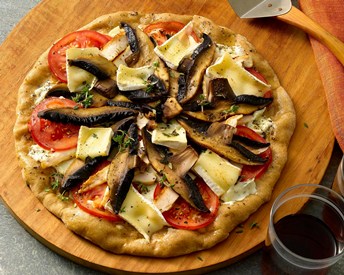50-Minute Classroom: Sauté
Wednesday, 04 January 2012 10:41
 Your students will want to reach for the tongs, spatula or spoon. Don’t let them. These six steps in class will effectively remove students’ fear—and enhance their thrill—of sautéing.
Your students will want to reach for the tongs, spatula or spoon. Don’t let them. These six steps in class will effectively remove students’ fear—and enhance their thrill—of sautéing.
By Adam Weiner, CFSE
For the last several articles I have addressed teaching business skills of our industry and teaching techniques. Now it is time to return to the teaching of specific cooking subjects. A cooking technique that both thrills and terrifies students is sautéing. To alleviate the fear, minimize the mess and cut back on food costs try the following six steps:
1. Teach What Is Sautéing. Sautéing basically means “to jump” in French. Tell your students that the different ingredients are cut into uniform size, and are added to the pan in the order of what takes the longest to cook going in first. The food is jumped, not stirred. In other words, the cook keeps flipping the food over in the pan so all sides of the food cook uniformly. Usually sautéing is done with a small amount of fat (generally oil or butter) in the pan.

 An overview of soy oil and its role in foodservice applications.
An overview of soy oil and its role in foodservice applications. Of the three things you can manage—cost, quality and quantity—you can realistically only manage two. Or so thought the Institute for the Culinary Arts at Metropolitan Community College .
Of the three things you can manage—cost, quality and quantity—you can realistically only manage two. Or so thought the Institute for the Culinary Arts at Metropolitan Community College . From social networking’s impact on success to a greater emphasis on in-house rustic fare to save cost, Technomic predicts the biggest influences on U.S. restaurants next year.
From social networking’s impact on success to a greater emphasis on in-house rustic fare to save cost, Technomic predicts the biggest influences on U.S. restaurants next year.